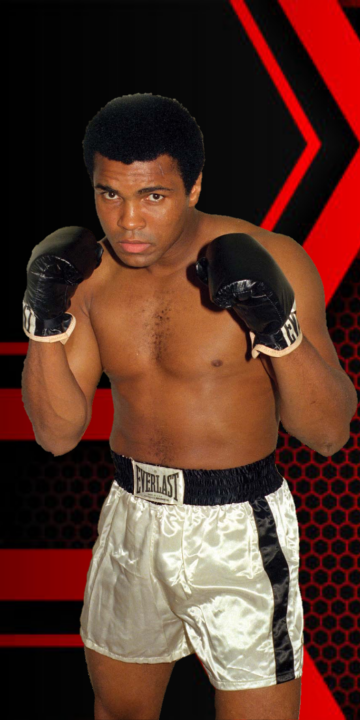I am the greatest, I said that even before I knew I was. ~Muhammed Ali

Muhammad Ali was born in 1942 and is widely considered to be one of the greatest boxers in history. Although he was an immensely successful athlete, many people aren’t aware that he struggled with dyslexia throughout his life.
Dyslexia is a learning disorder that can make it difficult for a person to read and write, as well as process information quickly.
Ali was diagnosed with dyslexia at the age of 12 and struggled throughout his teenage years to learn how to read. His teachers were not particularly helpful and often disregarded his condition as something he could just “get over.”
Despite these difficulties, Ali never let dyslexia stand in the way of achieving his goals. He worked hard on his reading skills and developed strategies to overcome his struggles, such as memorizing long passages rather than trying to read them.
In addition, Ali recognized the value of physical fitness in helping him deal with his challenge. He began boxing when he was just 12 years old and soon saw it as a way to gain confidence and focus on something other than his academic struggles.
He graduated at the bottom of his high school class – 376th out of 392 students. But he didn’t let that stop him.
By harnessing the power of physical activity, Ali eventually became one of the world’s best boxers… one of the most famous people of all time, and was also known for his eloquence.
Perhaps even more impressive is how Ali used his platform as a boxer to raise awareness about dyslexia and other learning differences. He was all about service to others. During interviews, he would frequently talk about how important it is for those with learning challenges to stay focused on their strengths rather than their weaknesses.
He understood how difficult it is to do poorly in school because of reading difficulties. He wanted to help others who were experiencing the same issues. So, Ali and his wife worked to improve the literacy of African Americans. They created the Go the Distance series of books and magazines to motivate and inspire young black readers.
He also made generous donations to organizations that support children with learning differences, which have helped countless individuals gain access to educational opportunities they may not have had otherwise.
Through sheer determination, hard work, and plenty of grit, Muhammad Ali overcame his learning difficulties and went on to become a three-time World Heavyweight Champion, Olympic gold medalist, and philanthropist who famously stated before his fights that he would, “Float like a butterfly, sting like a bee”.
Ali fought for civil rights and refused to be drafted into the US military based on his religious beliefs. His commitment to justice extended beyond boxing and he is remembered as one of the most influential figures in sports and wider society.
To this day, Muhammad Ali remains an icon known around the world for his courage and resilience in standing up for what he believed in.

Thank you for sharing the inspiring story of Muhammad Ali. It’s truly remarkable how he was able to overcome his struggles with dyslexia and become one of the greatest boxers of all time. It just goes to show that even when we face challenges, it’s possible to achieve greatness if we work hard and don’t let those challenges hold us back. Ali’s efforts to raise awareness about dyslexia and support children with learning differences are also incredibly admirable. He truly was an icon who made a positive impact on the world.
I have always admired Muhammed Ali, even before I knew he had dyslexia. His guts to speak up in the face of opposition and oppression was admirable.
Hi Florence
I did not know this about him.
I did respect him for what he accomplished after leaving the ring.
You know, Doug, at first I thought he was arrogant. Then I realized he was using a strategy to rouse his opponents’ emotional responses, thereby decreasing their performance.
I loved watching him in the ring and had the chance to meet him once in New York when he was traveling. He really was a great man in many areas. Thank you for sharing this.
Wow, what a privilege to meet the great Muhammed Ali! I would have loved to meet him. When I visited a friend who lived in the same area he resided in Michigan, it was too late for that.
I knew some of this but not all of it. I have always thought it was the coolest thing that he gave himself his own moniker. Thanks for this wonderful mini-bio.
You know, Laura, I don’t think many people knew Ali was dyslexic. You’re welcome.
he is not dumb
Children with dyslexia are not dumb. Some people call them dumb. There’s a difference.